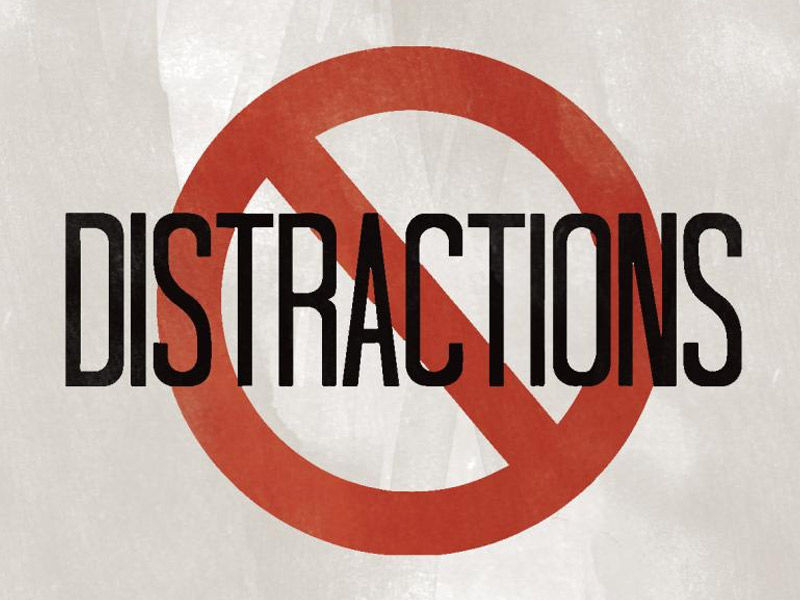You may have wished you could improve your ability to focus if you’ve ever struggled to complete a tough assignment at work, prepared for a critical test, or worked on a time-consuming project.
How to Improve the Concentration, you ask? Well, read on and scroll to learn more…
Concentration is the mental effort you put in right now to whatever you’re working on or studying. It’s often confused with attention span. However, while attention span relates to how long you can focus on something, concentration is the effort one puts into focusing.
For a variety of reasons, both attention span and focus might fluctuate. Some folks simply have a more difficult time tuning out distractions than others. Concentration can be affected by age and a lack of sleep.
Most individuals forget things more easily as they become older, and memory loss might be accompanied by a lack of attention. Concussions and other head or brain traumas, as well as some mental health problems, can impair focus. When you’re trying to focus but can’t, it’s simple to get frustrated. This might cause tension and irritability, making concentrating on what you need to achieve even more of a problem.
Being Concentrated is the key to almost everything, and here are a few tips on how to improve the concentration.
1)Brain Training

Certain sorts of games might help you improve your concentration. Working and short-term memory, as well as processing and problem-solving skills, may all be improved using brain training games. Children can benefit from brain training as well. Purchase a book of word puzzles, work together on a jigsaw puzzle, or play a memory game. Because memory and focus generally deteriorate with age, the impacts of brain training games may be especially crucial for older persons.
Even coloring can help youngsters and adults enhance their attentiveness. More elaborate coloring pages, such as those seen in adult coloring books, may appeal to older children. Sudoku, crossword puzzles, chess, jigsaw puzzles, and memory games are all good ways to exercise your brain and provide cognitive training.
2)Eliminate Distractions

People frequently underestimate the number of distractions that keep them from focusing on the work at hand. Such distractions might be in the shape of a loud radio in the background or an annoying coworker who stops by your desk to chat all the time. It’s not always as simple as it sounds to remove these sources of distraction. Setting aside a specified time and place and requesting to be left alone for that length of time is one technique to deal with this. One option is to find a quiet spot where you know you’ll be able to work uninterrupted.
A quiet coffee shop, the library, or a private area in your home might all be suitable options. Depression and Anxiety are the toughest distractions to deal with, and it requires a lot of hard work to deal with. To limit or remove such mental distractions, make sure you are well-rested and utilize positive ideas and imagery to combat anxiety and worry. If your mind wanders to distracting ideas, intentionally bring your attention back to the activity at hand and repeat the process if distracted again
3)Limit Your Focus

Though multitasking may appear to be an excellent approach to get a lot done fast, it turns out that humans are rather lousy at it. Juggling numerous jobs at once reduces productivity and makes it difficult to focus on the genuinely essential aspects. Because attentional resources are finite, it is critical to budget them carefully. Imagine your attention as a spotlight.
When you focus the spotlight on a certain place, you can see everything very clearly. But if you spread the same amount of light across a vast dark room, you can only see shadowy shapes. Making the most of the tools available to you is an important part of enhancing your mental concentration. So, you should stop multitasking and instead focus your entire concentration on one activity at a time.
Also Read, Amazing Guide on How to Improve Focus and Concentration
4)Mindfulness

For a good reason, mindfulness is a popular issue right now. Although types of mindfulness meditation have been practiced for thousands of years, its numerous health advantages are just now beginning to be recognized. Researchers had human resources workers participate in simulations of the type of sophisticated multitasking they did on the job every day. These activities had to be completed in 20 minutes and covered a variety of tasks. Some of the individuals underwent 8 weeks of mindfulness meditation instruction, and the results revealed that only those who got this instruction improved their attention and concentration.
Learning how to meditate is one aspect of mindfulness practice, but it may also be as simple as doing a brief and easy deep breathing exercise. Deep breathing may be practiced by taking many deep breaths and focusing intently on each one. When you see your attention wandering, gently and uncritically draw it back to your deep breathing. Do this a few times, and you’ll find that your concentration improves with time.
5)Take a Short Break
Your attention begins to deteriorate after a time, and it becomes increasingly difficult to commit your mental resources to work. Not only that, but your whole performance decreases as a result of it. Traditional psychological theories say that this is due to a depletion of attentional resources, while some experts feel it has more to do with the brain’s tendency to overlook sources of constant stimulation. Researchers have shown that even taking extremely brief pauses by diverting your attention elsewhere may increase mental focus considerably.
So the next time you’re working on a long activity, make sure to take a short mental break. Even if it’s only for a few seconds, divert your focus away from your current work. These little periods of rest will allow you to maintain your mental concentration and your performance when you need it most.
6)Spend Time in Nature

Try to get outside every day, even if it’s only for 15 to 20 minutes, to improve your focus organically. You may go for a brief walk in the park. Sitting on your lawn or garden may also be beneficial. Any natural setting offers advantages.
Scientific evidence suggests that natural settings have a favorable influence on improving concentration. Plants in the workplace have been shown to improve focus and productivity, as well as workplace happiness and air quality, according to research published in 2014. You can add a plant or two to your desk or house for a variety of advantages, and if you don’t have a green thumb, succulents are an excellent alternative for low-maintenance plants.
7)Sleep
Concentration, as well as other cognitive skills like memory and attention, may be readily disrupted by sleep deprivation. Sleep deprivation sometimes may not cause you too many difficulties. However, not getting enough sleep regularly might harm your mood and work performance. Too much sleep can impede your reflexes and impair your ability to drive or do other everyday chores, as does not get enough sleep.
Although getting enough sleep might be challenging due to a hectic schedule, health concerns, and other causes, it’s critical to obtain as near to the suggested quantity as feasible. Adults especially should strive for 7 to 8 hours of sleep every night.

























